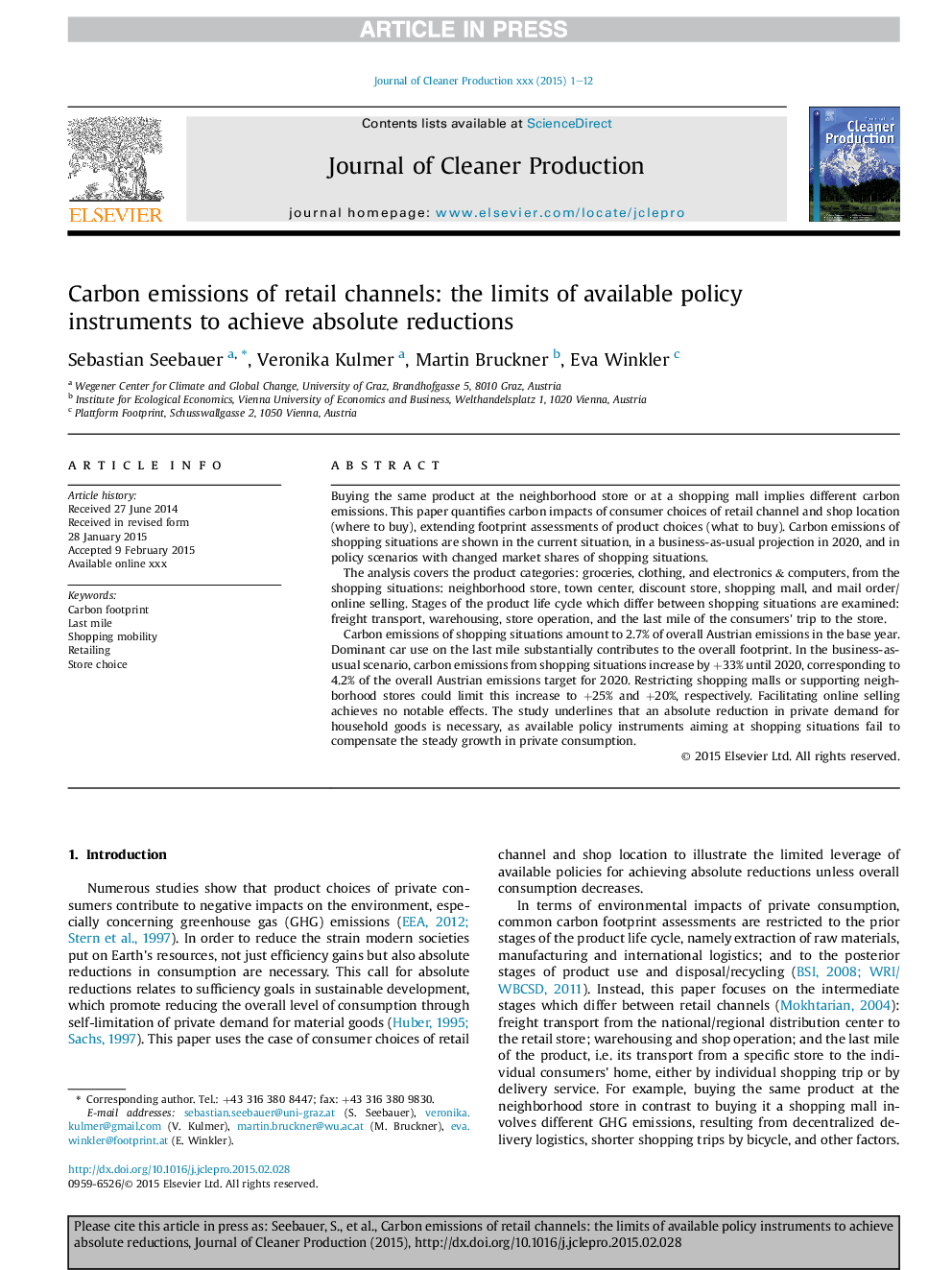| Article ID | Journal | Published Year | Pages | File Type |
|---|---|---|---|---|
| 8101502 | Journal of Cleaner Production | 2016 | 12 Pages |
Abstract
Carbon emissions of shopping situations amount to 2.7% of overall Austrian emissions in the base year. Dominant car use on the last mile substantially contributes to the overall footprint. In the business-as-usual scenario, carbon emissions from shopping situations increase by +33% until 2020, corresponding to 4.2% of the overall Austrian emissions target for 2020. Restricting shopping malls or supporting neighborhood stores could limit this increase to +25% and +20%, respectively. Facilitating online selling achieves no notable effects. The study underlines that an absolute reduction in private demand for household goods is necessary, as available policy instruments aiming at shopping situations fail to compensate the steady growth in private consumption.
Related Topics
Physical Sciences and Engineering
Energy
Renewable Energy, Sustainability and the Environment
Authors
Sebastian Seebauer, Veronika Kulmer, Martin Bruckner, Eva Winkler,
